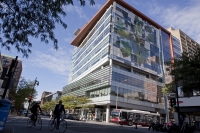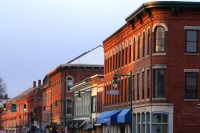Green Building Codes
Tue, Dec 13, 2011Do you know the green building code basics? City and state governments continue to adopt new ordinances that support sustainable building, and the new laws require new ways of doing business.
In recent years, more and more municipalities have been adopting green building codes as a strategy to help them to develop in a more sustainable fashion. Green building codes are issued for the purpose of improving public health, safety, and general welfare. They encourage sustainable construction practices in planning and design, energy efficiency, water efficiency and conservation, environmental quality, material conservation and resource efficiency; improvements in these areas have been shown to reduce negative effects and enhance positive environmental impacts.




